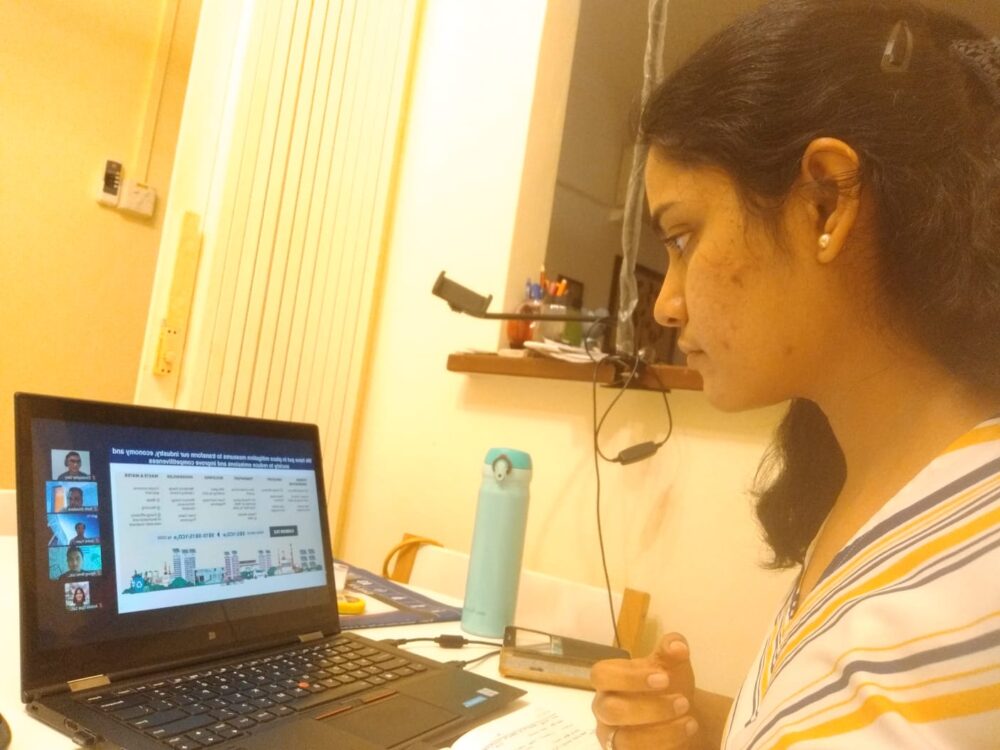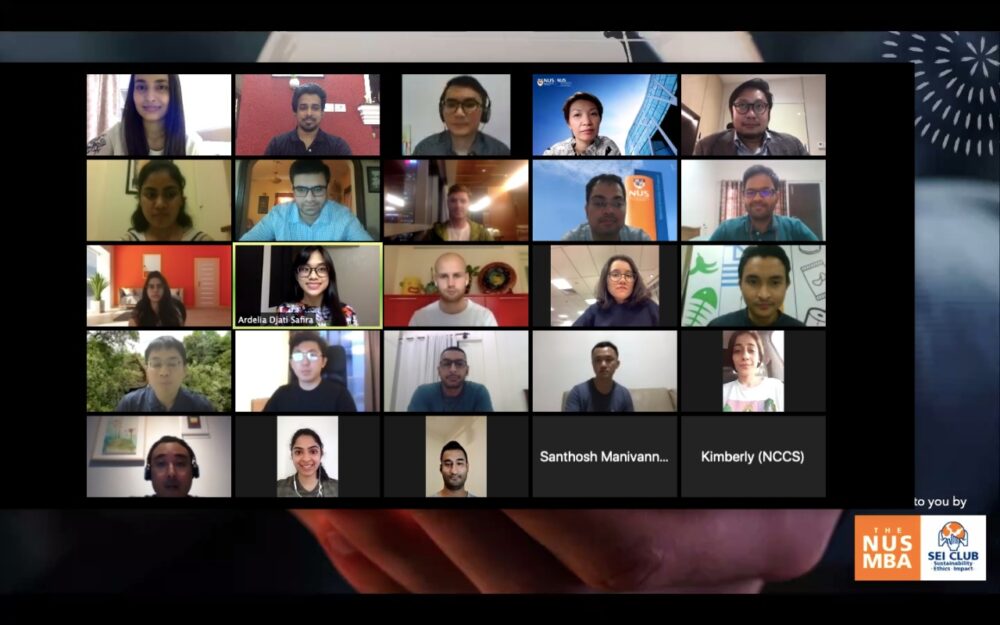By Poornima Ambalavanan
Singapore’s strategy to combat climate change covers a wide area from harnessing solar energy to cutting down greenhouse gas emissions.
The country takes a holistic private-public approach with government agencies working closely with industry partners to combat climate change.
According to panel speakers at a recent virtual talk held by the School’s Sustainability, Ethics and Impact (SEI) Club, initiatives such as setting up green technology testbeds and implementing energy efficiency standards require talent and knowledge.
The SEI Club is an MBA student body that aims to develop conscious leaders that promote sustainability. The talk was held for incoming MBA students ahead of their first semester.

Poornima at the virtual talk
Collaboration matters
At the event, Heng Jian Wei, Director of Policy and Planning Division, National Climate Change Secretariat (NCCS), and Agung Bimo Listyanu, Regional Ecosystems co-ordinator, Danone and co-founder of CarbonEthics, talked about how the government and private sector work together.
For instance, public housing councils work with private firms to generate electricity through solar power at public housing estates under a leasing model. These companies run energy-producing solar photovoltaic (PV) systems, while the councils pay for the power generated. The firms can test run new models for markets with climates similar to Singapore.
In a presentation, Jian Wei and his NCCS team talked about Singapore’s climate change strategy and NCCS. The organisation coordinates Singapore’s climate change policies and implementation efforts.
In his talk, Bimo described how corporations like Danone are weaving sustainability efforts into their corporate strategies. He also explained how CarbonEthics, a non-governmental organisation (NGO), works with coastal communities and local governments to restore mangrove forests in Indonesia. Mangroves help deal with global warming by removing carbon dioxide from the atmosphere.
A better understanding of the sustainability landscape
The two also said partnerships between the public and private sectors will lead to more jobs as organisations build sustainability-friendly business models, for instance.
These positions, they say, can be found in manufacturing, engineering and research & development roles in power, transport and building sectors.
One key takeaway from the session with Jian Wei and Bimo was that sustainability is everyone’s responsibility. Governments, corporations, NGOs and individuals need to collaborate to make sustainability work.
As future business leaders, it essential for MBA candidates to be aware of global risks and challenges in terms of the economy, society, and the environment. Attending such talks from leaders in the industry and government helpsus learn about sustainability and expose us to current sustainability trends across sectors.
We also gain insights into Singapore’s leading sustainability practices which will help us shape and fine-tune our post-MBA goals.
With the changing landscape and growing number of green job opportunities, there’s a need for entrepreneurial leaders who can drive growth with economic, social and environmental sustainability in mind. Meanwhile, organisations transforming their business models to meet changing needs will create prospects in strategy, operations and business development roles.
The informative and insightful event saw many participants asking questions on sustainability and employment opportunities in this space. Perhaps this will present some new avenues as our MBAs pursue their career paths as future leaders and make transformative change to industry.
MBA candidate Poornima Ambalavanan is a member of the SEI Club. The Club is part of 11 industry-specific clubs under the NUS MBA Students’ Council.





